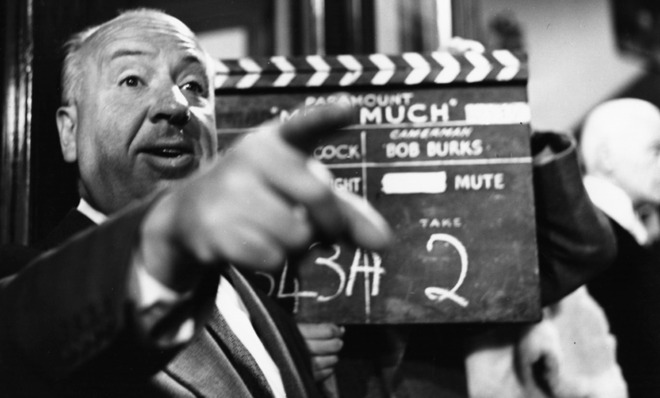How to motivate people, according to science
Don't discount the power of a good story


Employees, spouses, kids — what does it take to get people motivated so you don't have to nag them?
Motivation is powerful. It predicts success better than intelligence, ability, or salary.
When tested in national surveys against such seemingly crucial factors as intelligence, ability, and salary, level of motivation proves to be a more significant component in predicting career success. While level of motivation is highly correlated with success, importantly, the source of motivation varies greatly among individuals and is unrelated to success. – Bashaw and Grant 1994 [The 100 Simple Secrets of Successful People]
I've covered persuasion, leadership, improving habits, and fighting procrastination but what's it take to get others to really give their best?
The Week
Escape your echo chamber. Get the facts behind the news, plus analysis from multiple perspectives.

Sign up for The Week's Free Newsletters
From our morning news briefing to a weekly Good News Newsletter, get the best of The Week delivered directly to your inbox.
From our morning news briefing to a weekly Good News Newsletter, get the best of The Week delivered directly to your inbox.
1) Stop bribing them
When actors would ask the great film director Alfred Hitchcock "What's my motivation?" he would reply, "Your salary."
Rewards definitely work.
Researchers find that perceived self-interest, the rewards one believes are at stake, is the most significant factor in predicting dedication and satisfaction toward work. It accounts for about 75 percent of personal motivation toward accomplishment. – Dickinson 1999 [The 100 Simple Secrets of Successful People]
But as Dan Pink explains in Drive: The Surprising Truth About What Motivates Us there's a problem with this equation:
A free daily email with the biggest news stories of the day – and the best features from TheWeek.com
Rewards just motivate people to get rewards. When the rewards go away, people stop.
And if you want anything other than basic manual labor — if you want creative work or analytical work — rewards can actually backfire.
Dan Pink explains here:
Yes, you need to pay people but you should pay them just enough to take the issue of money off the table.
Pink shows that for complex tasks we're more motivated by the need for autonomy, mastery, and purpose.
So if rewards are problematic, what does work?
2) Make them feel something
We often talk about people being motivated by revenge, jealousy, fear, passion… What do these have in common?
Yeah, they're all feelings. And they're all powerful motivators.
We rarely do anything we don't feel and it's very hard to resist things we do feel. It's how your brain is structured.
Chip and Dan Heath sum up the research in their book Switch: How to Change Things When Change Is Hard: "Focus on emotions. Knowing something isn't enough to cause change. Make people (or yourself) feel something."
We often think of the workplace as less emotional, more formal and serious. And as far as motivation goes, that's a terrible idea.
What strategies really improve organizations? Research involving 400 people across 130 companies came up with a simple answer:
You must change individual behavior by addressing employee feelings.
…the core of the matter is always about changing the behavior of people, and behavior change happens in highly successful situations mostly by speaking to people's feelings. [Switch: How to Change Things When Change Is Hard]
So what's the most powerful thing for people to be feeling if you want to increase motivation?
3) Emphasize progress
Harvard's Teresa Amabile's research found that nothing is more motivating than progress.
This pattern is what we call the progress principle: of all the positive events that influence inner work life, the single most powerful is progress in meaningful work; of all the negative events, the single most powerful is the opposite of progress — setbacks in the work. We consider this to be a fundamental management principle: facilitating progress is the most effective way for managers to influence inner work life. [The Progress Principle: Using Small Wins to Ignite Joy, Engagement, and Creativity at Work]
A consistent amount of minor success produces much more happiness than occasionally bagging an elephant.
Life satisfaction is 22 percent more likely for those with a steady stream of minor accomplishments than those who express interest only in major accomplishments. – Orlick 1998 [Via The 100 Simple Secrets of Successful People]
You want a steady amount of challenge, achievement and feedback:
Progress is powerful. Encourage people to reflect on how far they've come and the good work they've done.
That's not indulgent or fluffy — persistent people spend twice as long thinking about their accomplishments.
Comparing people who tend to give up easily with people who tend to carry on, even through difficult challenges, researchers find that persistent people spend twice as much time thinking, not about what has to be done, but about what they have already accomplished, the fact that the task is doable, and that they are capable of it. – Sparrow 1998 [The 100 Simple Secrets of Successful People]
Dan Ariely, author of Predictably Irrational, explains how when we feel no progress, when we feel our work is futile, motivation dies:
So you made them feel something. You demonstrated progress. How do you keep the motivation flowing?
4) Form a cult (well, almost)
Not literally. No funky robes or animal sacrifice necessary. But what else unites a cult?
Shared belief. A story.
Venture Capitalist Ben Horowitz explains that the best work cultures are actually cults: a group unified by a provocative idea.
In his bestselling book Built to Last, Jim Collins wrote that one of the things that long-lasting companies he studied have in common is a "cult-like culture." …Collins was right that a properly designed culture often ends up looking cultlike in retrospect, but that's not the initial design principle. You needn't think hard about how you can make your company seem bizarre to outsiders. However, you do need to think about how you can be provocative enough to change what people do every day. [The Hard Thing About Hard Things: Building a Business When There Are No Easy Answers]
Looking at the research: What gives life meaning? Stories. What gives work meaning? Stories. What creates unity and morale? Stories:
Institutions that can communicate a compelling historical narrative often inspire a special kind of commitment among employees. It is this dedication that directly affects a company's success and is critical to creating a strong corporate legacy…
In his book Leading Minds: An Anatomy Of Leadership Howard Gardner says "stories are the most powerful weapon in the leader's literary arsenal."
One of the reasons Lincoln was such a good president was because he was a great storyteller.
So how do you craft a good story that unites and motivates people?
Simon Sinek, author of Start with Why: How Great Leaders Inspire Everyone to Take Action, has an interesting theory: "People are engaged and motivated by why we do things more than what we do."
All motivating messages, from Apple's marketing to Martin Luther King's "I Have A Dream" speech, do the same thing: They start with "Why."
Sum up
Research actually shows nagging works:
Managers who are deliberately redundant as communicators move their projects forward more quickly and smoothly than those who are not.
But have you ever accomplished your best work because someone nagged you? I didn't think so.
Here's what to do instead:
- Stop bribing
- Make them feel something
- Emphasize progress
- Start a cult — (with a story)
Good thinking starts with strong feelings.
Join 45K+ readers. Get a free weekly update via email here.
More from Barking Up The Wrong Tree...
-
 The future of the Paris Agreement
The future of the Paris AgreementThe Explainer UN secretary general warns it is ‘inevitable’ the world will overshoot 1.5C target, but there is still time to change course
-
 A scenic road trip in the French Riviera
A scenic road trip in the French RivieraThe Week Recommends The mild climate of the Côte d’Azur makes it ideal for shoulder season
-
 DC tourism has taken a hit
DC tourism has taken a hitUnder the Radar The government shutdown has reduced tourist attractions
